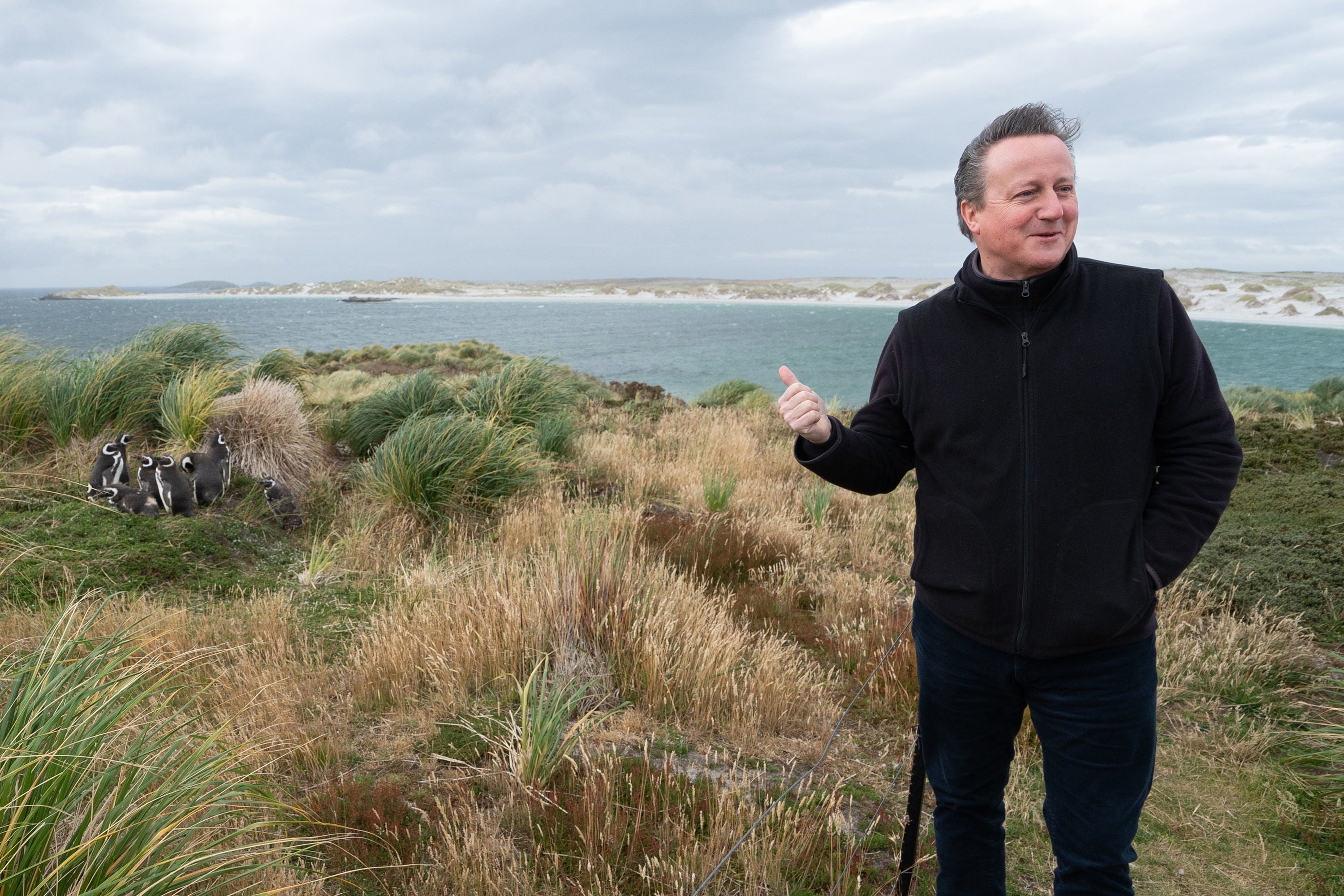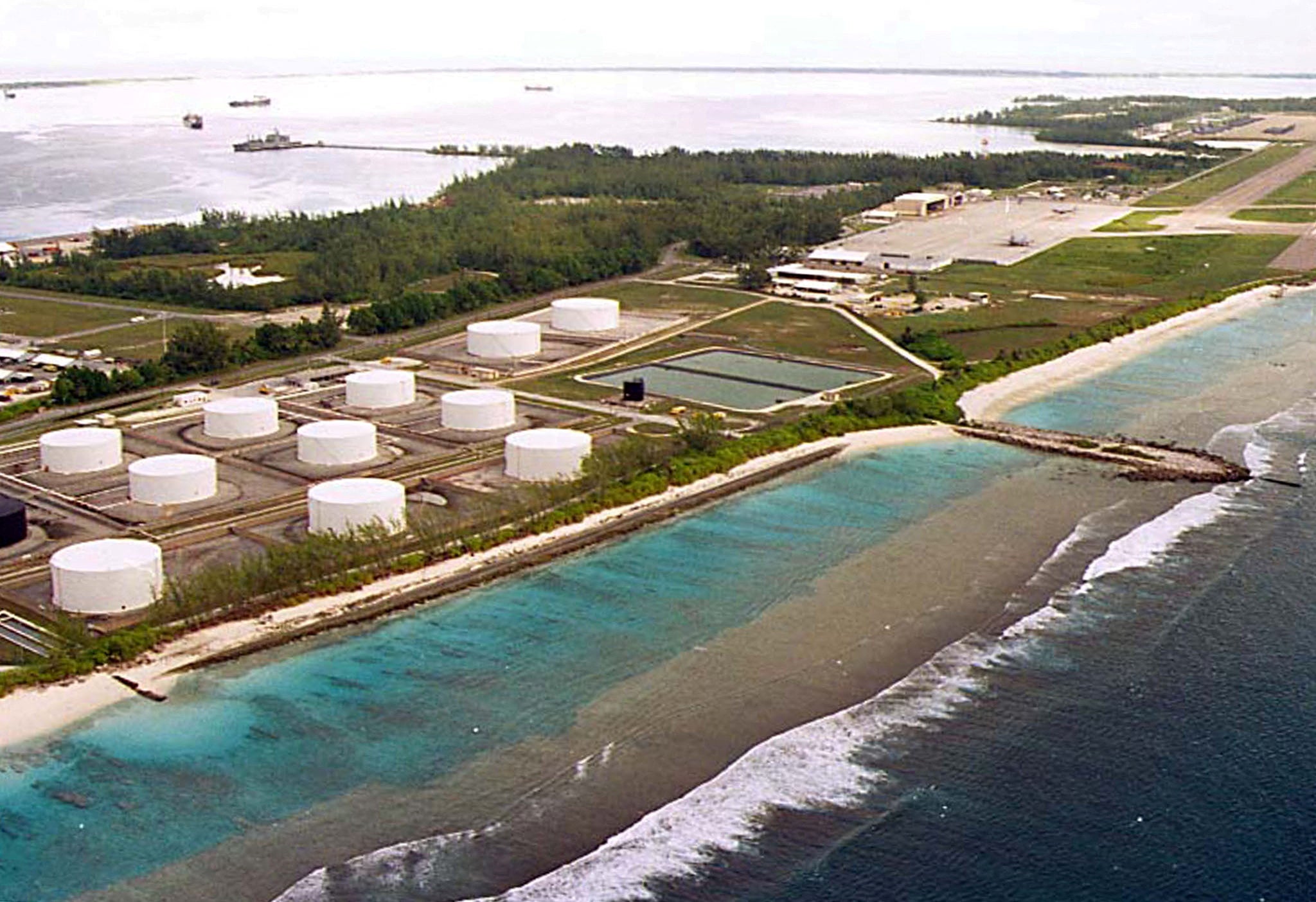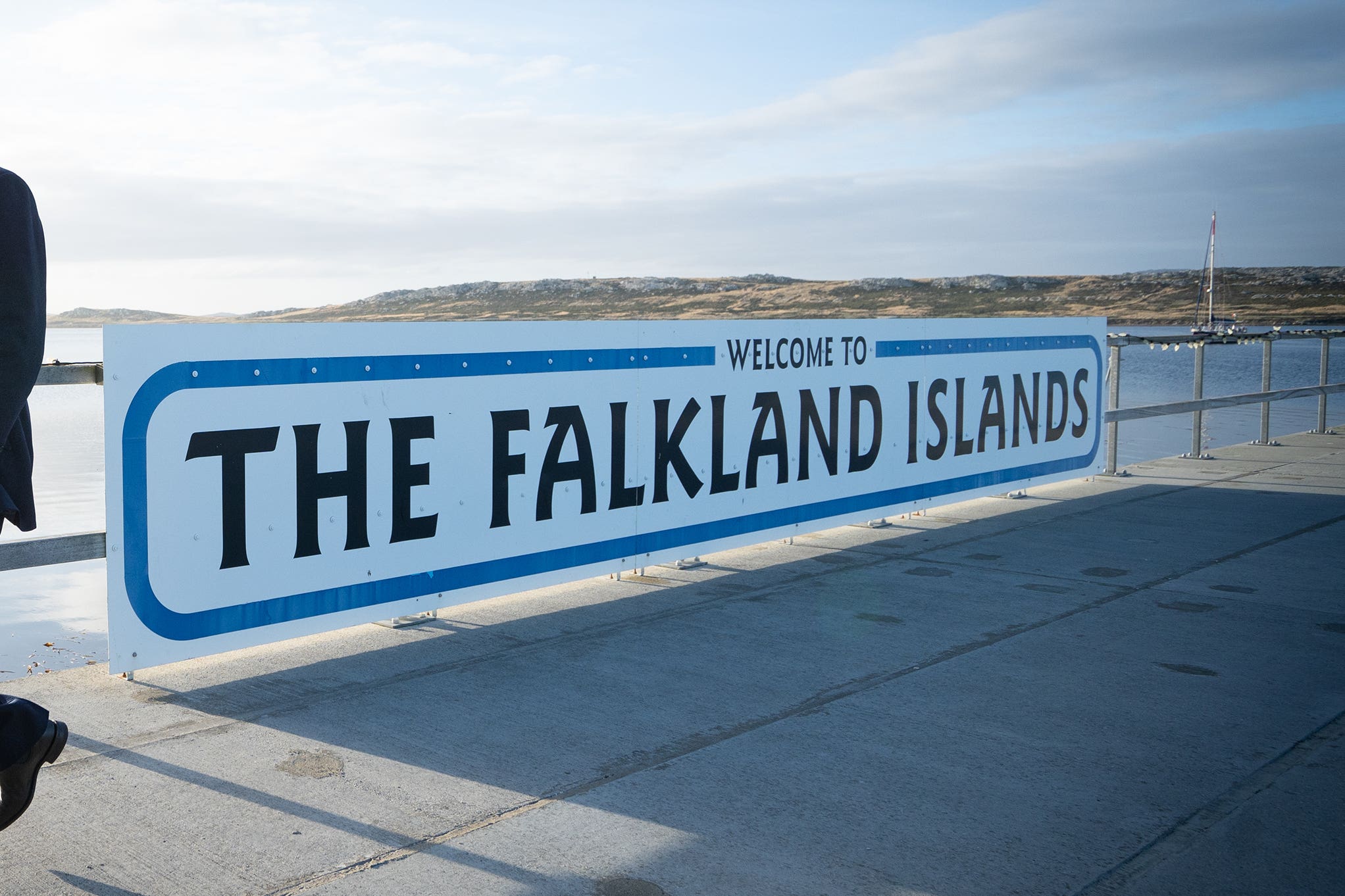Fears over future of Falklands after Chagos Islands deal dubbed ‘strategic disaster’
Exclusive: A group of indigenous Chagossians are planning to stage a protest over the decision to hand the archipelago over to Mauritius, The Independent understands, accusing the government of excluding them from talks

Your support helps us to tell the story
From reproductive rights to climate change to Big Tech, The Independent is on the ground when the story is developing. Whether it's investigating the financials of Elon Musk's pro-Trump PAC or producing our latest documentary, 'The A Word', which shines a light on the American women fighting for reproductive rights, we know how important it is to parse out the facts from the messaging.
At such a critical moment in US history, we need reporters on the ground. Your donation allows us to keep sending journalists to speak to both sides of the story.
The Independent is trusted by Americans across the entire political spectrum. And unlike many other quality news outlets, we choose not to lock Americans out of our reporting and analysis with paywalls. We believe quality journalism should be available to everyone, paid for by those who can afford it.
Your support makes all the difference.Concerns have been raised over the future of the Falkland Islands after the UK gave up control of a remote archipelago, sparking anger from indigenous campaigners and MPs.
In a move that has since been dubbed a “strategic disaster”, the government on Thursday said it had reached a political agreement to hand the Chagos Islands over to Mauritius following negotiations that began in 2022.
The deal is meant to secure the future of a secretive military base on the island of Diego Garcia, but it has left the UK without sovereign territorial control over a piece of land in the Indian Ocean that is crucial to Western security.
While the US-UK base will remain on the island, the agreement has triggered fears that China could be permitted to establish its own bases in the Chagos Islands, as well as raising concerns that Britain’s control of the Falklands could be under threat.

It has also sparked anger among indigenous Chagossians, who have accused the government of excluding them from talks.
Chagossian Voices, a group representing indigenous people from the Chagos Islands, is planning to stage a protest over the decision at Westminster on Monday, The Independent understands.
They said their views have been “consistently and deliberately ignored”, and are demanding full inclusion in the drafting of the treaty.
The group claim to have learnt the outcome of the negotiations via the media, and complained that indigenous Chagossians feel “powerless and voiceless in determining our own future”. They are calling for the archipelago to remain under British protection.
Meanwhile, former armed forces minister Mark Francois said the deal is a “strategic disaster” for the UK and our US allies, telling The Independent: “Not only does it threaten an eventual Chinese veto over the future of the key base on Diego Garcia, it will only embolden nations like Argentina to press for control of the Falklands.”
“It’s absolute madness,” he added.
This came after Argentina vowed to gain “full sovereignty” of the British-controlled group of islands in the South Atlantic in the wake of the Chagos deal.
Former cabinet minister Simon Clarke agreed that the deal could threaten the legitimacy of the Falklands, warning: “This decision perfectly encapsulates our naive belief in ‘soft power’ over the hard reality that history is not finished with us, even if the Labour government appears to want to be finished with history.
“As the late 20th century world order begins to break down around us, a serious government would never surrender sovereignty over a critical strategic asset on the basis of such a flimsy claim.
“This decision not only compromises a vital base that is of huge value to our American allies, it also strikes at the heart of our ability to defend our continued control of other sovereign bases, from Gibraltar to Cyprus, and indeed the legitimacy of our overseas territories like the Falklands,” he told The Independent.
Tory MP Geoffrey Clifton-Brown said the decision to hand back the Chagos Islands is “completely wrong”. He said: “It will cause great unease in our people in our overseas territories, including the Falklands and Gibraltar.”
Meanwhile, former prime minister Boris Johnson branded the move “total nonsense”, telling GB News that Labour are “trying to look like the good guys”.
But Labour MP Tim Roca said it would be wrong to draw comparisons between the Chagos Islands and any other British overseas territory, telling The Independent: “To do so is simplistic and ignores the varied history and circumstances of different territories across the globe.”
He added: “Reaching this agreement is a clear message that diplomacy works – and sends a message to aggressors like Vladamir Putin that negotiation and dialogue are the ways to resolve disputes in the 21st century, not war.”
But asked to guarantee that no other British overseas territories will be signed away under the Labour government, Sir Keir Starmer failed to rule it out, telling journalists: “The single most important thing was ensuring that we had a secure base, the joint US-UK base; hugely important to the US, hugely important to us.
“We’ve now secured that, and that is why you saw such warm words from the US yesterday.”
Downing Street sources later insisted there had been no change of position on Gibraltar, the Falklands Islands, or any of the other British overseas territories.
Jonathan Powell, former chief of staff to Tony Blair and special envoy for negotiations between the UK and Mauritius, dismissed concerns over China, saying: “It could hardly be further from the truth.
“Mauritius is one of only two countries in Africa that’s not a member of China’s Belt and Road [Initiative]. So this notion that we’ve somehow given the Chagos Islands to an ally of China is rubbish, and anyway, the negotiations were started by the previous Tory government,” he told Times Radio.

This came after US president Joe Biden welcomed the “historic agreement”, saying it was a “clear demonstration that through diplomacy and partnership, countries can overcome longstanding historical challenges to reach peaceful and mutually beneficial outcomes”.
In a statement on Thursday, Falklands governor Alison Blake sought to reassure residents that Britain’s commitment to the South Atlantic territory was “unwavering”, stressing that the historical contexts of the two territories were “very different”.
Chagossians were forced to leave the central Indian Ocean territory in 1973 to make way for the military base, as part of a series of expulsions that are now regarded as one of the most shameful episodes in Britain’s modern colonial history.
The International Court of Justice, the United Nations’ highest court, previously ruled that the UK’s administration of the territory was “unlawful” and must end.
A FCDO Spokesperson said: “The situations are not comparable. This is a unique agreement that has absolutely no bearing on the wider UK government policy regarding our other Overseas Territories. It is a very different issue with a very different history.
“We remain committed to our Overseas Territories family.”
Join our commenting forum
Join thought-provoking conversations, follow other Independent readers and see their replies
Comments